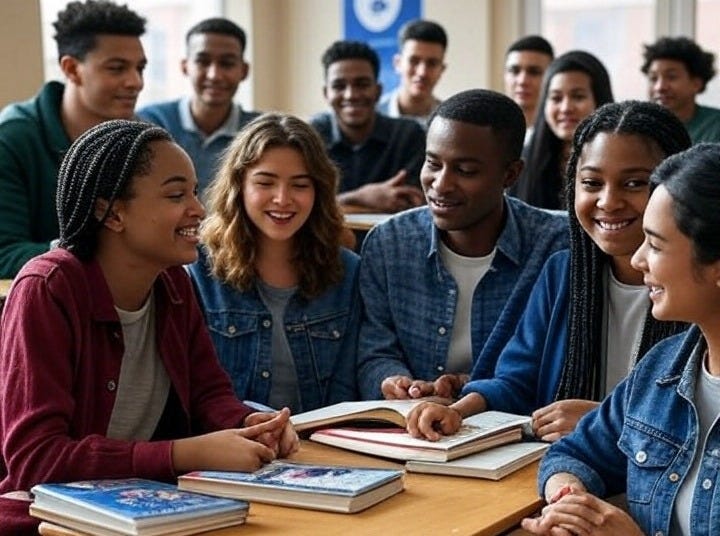Debunking the Myth: Public Funds for Private Schools Drain Resources
Anti-school choice advocates often argue that diverting public money to private schools undermines public education, exacerbating inequality and wasting taxpayer dollars. However, decades of research on voucher programs, education savings accounts (ESAs), and similar initiatives paint a different picture: these programs save money, boost student outcomes, and promote equity, particularly for low-income and minority families. Far from a drain, school choice fosters competition that benefits all students while aligning public funds with family needs.
First, the fiscal "drain" narrative is overstated. Voucher amounts are typically far below public school per-pupil spending—around $7,000 versus $15,000 nationally—meaning when a student switches, public schools retain savings from reduced enrollment. A comprehensive audit of U.S. voucher programs found they generated at least $1.7 billion in taxpayer savings since 1990, calculated by comparing voucher costs to avoided public expenditures. Recent analyses reinforce this: In EdChoice's 2025 review of 83 fiscal studies, most new programs yielded long-term savings after initial costs. Public education funding has risen 25% in the last decade despite school choice expansion, proving no zero-sum game.
Second, choice improves academic outcomes through competition. A 2016 analysis found overwhelmingly positive effects on achievement, stronger in reading than math, and larger internationally where public-private gaps are wider. Domestically, a 2024 review of 29 studies showed 26 with positive impacts on public school students' test scores. Another analysis confirmed small but significant gains in math and reading from choice-induced competition. Long-term, vouchers increase graduation rates by 10-15%. Early negatives, like in Louisiana, fade as programs mature and regulations ease.
Third, choice advances equity for disadvantaged groups. Urban Institute evidence shows vouchers raise test scores and attainment for low-income minorities, citing reviews with positive effects and programs like KIPP charters yielding large gains. In New York City, voucher use boosted college enrollment by 15-30 percentage points for moderately low-income Black and Hispanic students. Seven of eight integration studies find choice reduces segregation, countering residential zoning traps. Parental satisfaction soars, with 31 of 33 studies positive.
Opponents of school choice frequently argue that public funds should never support private entities. In a recent article published in Mississippi Today, Bobby Harrison likened school choice programs to the government subsidizing family trips to Disneyland, suggesting that tax dollars meant for the common good are being misdirected to personal preferences.
Yet, even casual observers can spot the fallacy in this analogy. Public money routinely funds private providers—such as Pell Grants for private colleges or Medicare reimbursements for private hospitals—making the "no public funds for private schools" stance inherently inconsistent. School choice empowers parents to make decisions tailored to their children's needs, fosters educational innovation, and embodies free-market principles that drive quality improvements.
In summary, the anti-choice argument prioritizes protecting public school monopolies over student needs. Evidence shows choice saves money, boosts outcomes, and expands opportunity—making it a worthwhile use of public funds. With over a million students in choice programs by 2024, policymakers should embrace it for a stronger educational system.




I've had a few folks ask for sources of my information. Here is a list of links to studies and other articles where I gathered information:
https://fordhaminstitute.org/ohio/commentary/basic-facts-undermine-arguments-private-school-choice-critics
https://showmeinstitute.org/blog/school-choice/do-private-school-choice-programs-take-money-away-from-public-schools/
https://www.americanprogress.org/article/how-the-school-choice-agenda-harms-rural-students/
https://www.edchoice.org/debunking-arguments-against-school-choice-privatization-drains-money-from-already-underfunded-public-schools/
https://www.future-ed.org/the-new-wave-of-public-funding-of-private-schools-explained/
https://www.edchoice.org/debunking-arguments-against-school-choice-privatization-drains-money-from-already-underfunded-public-schools/
https://pmc.ncbi.nlm.nih.gov/articles/PMC11346812/
https://www.aeaweb.org/articles?id=10.1257/jel.20150679
https://fordhaminstitute.org/national/commentary/impact-voucher-programs-deep-dive-research
https://www.urban.org/long-term-effects-private-school-choice-programs
https://www.heritage.org/education/commentary/here-are-10-reasons-school-choice-winning
https://scholars.org/contribution/evolving-evidence-school-voucher-effects
https://www.edweek.org/policy-politics/private-school-choice-what-the-research-says/2024/10
https://www.urban.org/long-term-effects-private-school-choice-programs
https://www.edchoice.org/resources/faqs/who-uses-school-choice-programs/
https://www.myjournalcourier.com/opinion/article/school-choice-help-future-prosper-valeria-20354784.php
https://www.acescholarships.org/2023/05/19/school-choice-why-is-it-so-important/
https://www.ncpecoalition.org/vouchers-harm-student-achievement
https://www.americanprogress.org/article/highly-negative-impacts-vouchers/
https://www.nea.org/advocating-for-change/action-center/our-issues/vouchers
https://firstfocus.org/resource/privatizing-public-school-funds-threats-to-equity-access-and-educational-quality/
https://www.edchoice.org/research/the-school-voucher-audit/
https://news.uark.edu/articles/34583/meta-analysis-finds-positive-impact-of-school-choice-programs-worldwide
https://www.urban.org/urban-wire/school-choice-antipoverty-strategy
https://www.educationnext.org/school-choice-truly-disadvantaged-vouchers-boost-college/
"Public education funding has risen 25% in the last decade despite school choice expansion, proving no zero-sum game."
Funny how changing just a few words can change a fact into propaganda. How about the reality:
"Public education funding has risen 25% in the last decade Because Of 'school choice' (euphemism for privatization), proving it's worse than a zero sum game."